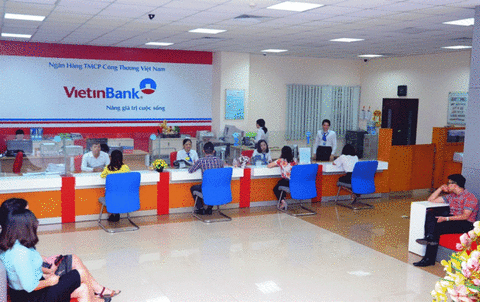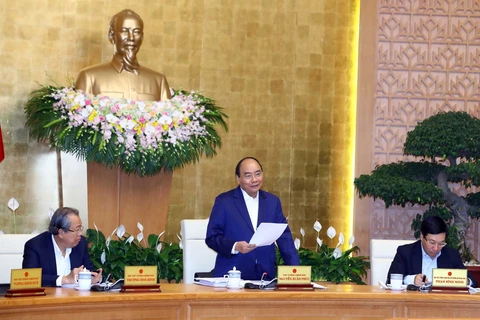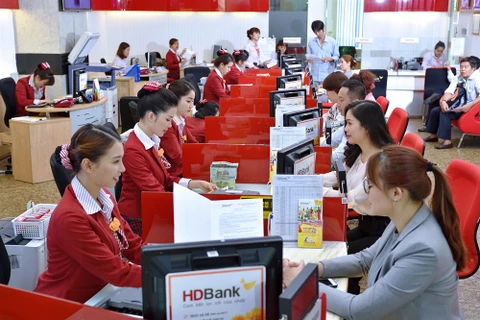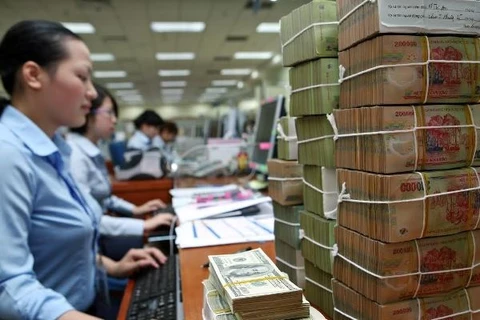Hanoi (VNS/VNA) - Foreign financial institutions were eyeing up poorly-performing Vietnamese banks after being given the green light to acquire stakes in local institutions in a move to speed up the restructuring of the country’s banking industry, according to banking expert Nguyen Tri Hieu.
M&As in the banking industry had remained quiet for the past two years after witnessing a record from 2011-2016.
However, Hieu said things were warming up this year as the Government wanted to speed up the restructuring of ailing banks while small banks also had to increase capital to meet the State Bank of Vietnam (SBV)’s Basel II regulations by 2020.
“The Vietnamese financial market holds a lot of potential, but license applications to establish a bank are very difficult, so purchasing shares in local banks or acquiring a 100 percent stake in ailing institutions are the best options for foreign investors,” Hieu said.
Last week, Japanese-based J Trust Corp expressed an interest in acquiring a stake in the Construction Bank (CB) - one of three weakest State-owned banks under the State Bank of Vietnam (SBV) - took over for zero Vietnamese dong in 2015 to prevent a systematic collapse of the banking system due to its inability to settle soaring bad debts.
During a recent meeting with Deputy Prime Minister Vuong Dinh Hue, Nobiru Adachi, Senior Managing Director of J Trust, said his group wanted to be involved in the restructuring of CB.
Besides the capital contribution, J Trust would also support CB in terms of technology and financial operations, Adachi said, expressing his hope that the Vietnamese Government and the SBV would create favourable conditions for the success of its negotiations and the transaction.
According to Hue, the Vietnamese government provides every possible support for domestic and foreign investors, especially those with strong financial and governance capacity as well as experience in banking, to take part in restructuring poorly-performing Vietnamese banks.
Although the Vietnamese Government has no plans to establish more wholly foreign-owned banks in the country, it encourages foreign investors to participate in restructuring weak banks and then become an entity holding 100 percent of capital in line with domestic legal regulations.
Hue asked Adachi and collaborators to continue discussing their offer to submit to the Vietnamese government and the Prime Minister for consideration.
Apart from CBBank, Hue also welcomed the involvement of J Trust, which successfully revived several financial-consumption companies and restructured weak banks in the Republic of Korea and Indonesia, in restructuring other credit organisations in Vietnam.
Richard F.Chandler, Chairman of the Singapore-based Clermont Group, also expressed his desire to invest in Vietnamese banks during a meeting with SBV Governor Le Minh Hung.
With experience in bank restructuring and bad debt settlement in Brazil, Russia, Japan and India, he said his group wanted to take part in the restructuring of Vietnamese banks, noting that the group wished to make more contributions to Vietnam.
In Vietnam, Clermont Group invested in Hoan My Medical Corporation in 2013. From six hospitals at that time, Hoan My now comprises 15 hospitals and six clinics, where more than 4,000 employees serve 3.7 million patients annually.
SBV representatives also announced a potential foreign investor was willing to acquire OceanBank - another bank acquired by the SBV for zero dong.-VNS/VNA
M&As in the banking industry had remained quiet for the past two years after witnessing a record from 2011-2016.
However, Hieu said things were warming up this year as the Government wanted to speed up the restructuring of ailing banks while small banks also had to increase capital to meet the State Bank of Vietnam (SBV)’s Basel II regulations by 2020.
“The Vietnamese financial market holds a lot of potential, but license applications to establish a bank are very difficult, so purchasing shares in local banks or acquiring a 100 percent stake in ailing institutions are the best options for foreign investors,” Hieu said.
Last week, Japanese-based J Trust Corp expressed an interest in acquiring a stake in the Construction Bank (CB) - one of three weakest State-owned banks under the State Bank of Vietnam (SBV) - took over for zero Vietnamese dong in 2015 to prevent a systematic collapse of the banking system due to its inability to settle soaring bad debts.
During a recent meeting with Deputy Prime Minister Vuong Dinh Hue, Nobiru Adachi, Senior Managing Director of J Trust, said his group wanted to be involved in the restructuring of CB.
Besides the capital contribution, J Trust would also support CB in terms of technology and financial operations, Adachi said, expressing his hope that the Vietnamese Government and the SBV would create favourable conditions for the success of its negotiations and the transaction.
According to Hue, the Vietnamese government provides every possible support for domestic and foreign investors, especially those with strong financial and governance capacity as well as experience in banking, to take part in restructuring poorly-performing Vietnamese banks.
Although the Vietnamese Government has no plans to establish more wholly foreign-owned banks in the country, it encourages foreign investors to participate in restructuring weak banks and then become an entity holding 100 percent of capital in line with domestic legal regulations.
Hue asked Adachi and collaborators to continue discussing their offer to submit to the Vietnamese government and the Prime Minister for consideration.
Apart from CBBank, Hue also welcomed the involvement of J Trust, which successfully revived several financial-consumption companies and restructured weak banks in the Republic of Korea and Indonesia, in restructuring other credit organisations in Vietnam.
Richard F.Chandler, Chairman of the Singapore-based Clermont Group, also expressed his desire to invest in Vietnamese banks during a meeting with SBV Governor Le Minh Hung.
With experience in bank restructuring and bad debt settlement in Brazil, Russia, Japan and India, he said his group wanted to take part in the restructuring of Vietnamese banks, noting that the group wished to make more contributions to Vietnam.
In Vietnam, Clermont Group invested in Hoan My Medical Corporation in 2013. From six hospitals at that time, Hoan My now comprises 15 hospitals and six clinics, where more than 4,000 employees serve 3.7 million patients annually.
SBV representatives also announced a potential foreign investor was willing to acquire OceanBank - another bank acquired by the SBV for zero dong.-VNS/VNA
VNA
























